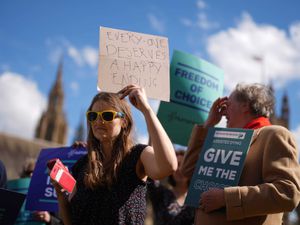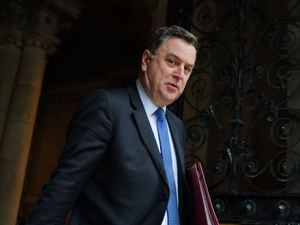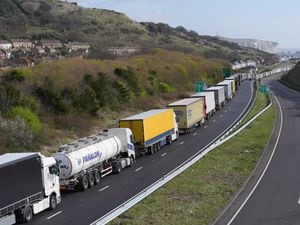Theresa May requests Brexit delay until June 30, with option to leave earlier
The Prime Minister has written to European Council president Donald Tusk asking for an extension to the Article 50 withdrawal process.
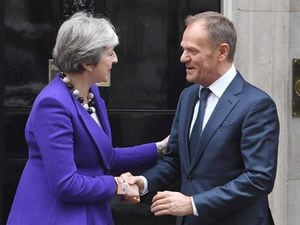
Theresa May has written to European Council president Donald Tusk requesting a further delay to Brexit until June 30, with the option to leave earlier if her Withdrawal Agreement is ratified.
The Prime Minister said she will seek to secure ratification and departure before the European Parliament elections on May 23, but will make “responsible preparations” for the UK to take part in the polls if that does not prove possible.
The request will be considered at an emergency EU summit on April 10, where it requires the unanimous agreement of the leaders of the remaining 27 member states.
But EU sources said Mr Tusk is recommending a longer postponement of one year, with a break clause in the case of earlier ratification, in a so-called “flextension” deal.
Mrs May has already obtained one extension to the Article 50 withdrawal process, postponing the date of Brexit from March 29 to April 12 – next Friday.
She was forced to seek a second delay after her deal was rejected for a third time by MPs last week.
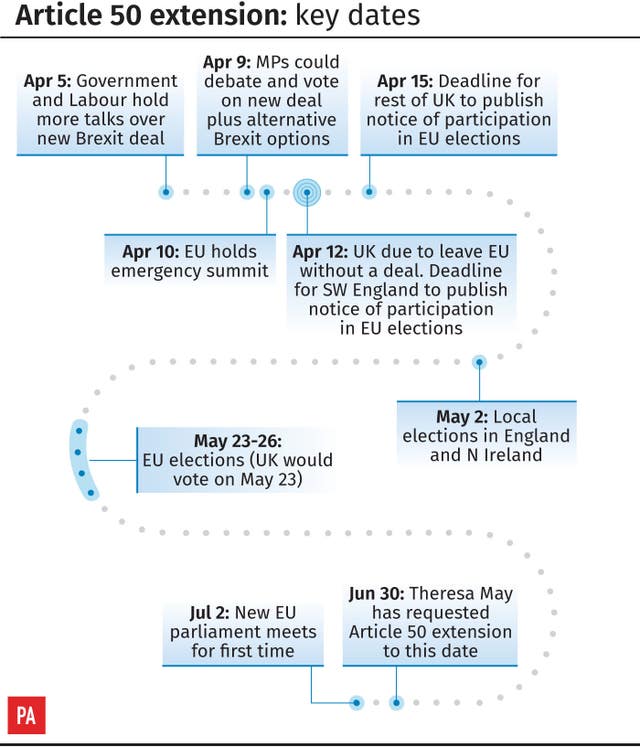
In her letter, she wrote: “The United Kingdom is seeking a further extension to the period provided under Article 50(3) of the Treaty on European Union, including as applied by Article 106a of the Euratom Treaty.
“The United Kingdom proposes that this period should end on 30 June 2019. If the parties are able to ratify before this date, the Government proposes that the period should be terminated early.
“The Government will want to agree a timetable for ratification that allows the United Kingdom to withdraw from the European Union before 23 May 2019 and therefore cancel the European Parliament elections, but will continue to make responsible preparations to hold the elections should this not prove possible.”
Mrs May said if ongoing talks with Labour do not lead to a “single unified approach soon” then the Government would instead look to establish a “consensus” on options on a future relationship that could be put to the Commons.
She wrote: “The Government stands ready to abide by the decision of the House, if the Opposition will commit to doing the same.”
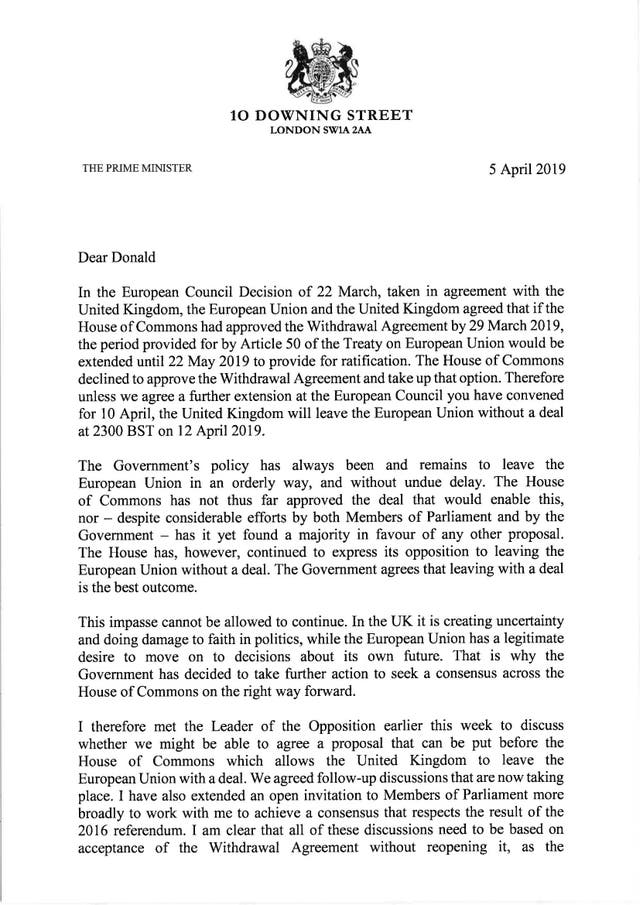
Talks aimed at finding a way out of the Brexit deadlock are continuing between the Government and Labour negotiating teams on Friday.
Speaking during a visit to south Wales to mark his party’s victory in the Newport West by-election, Jeremy Corbyn said: “There’s been no obvious move on the side of the Government as of yet, we’re continuing those talks.
“Our position is there has to be a market relationship with Europe, there has to be a customs union, and we have to be able to develop our own policies when we’re in government, particularly competitions policy which I’m concerned about.
“If we crashed out without a deal there would be an immediate disruption to supply chains as well as to the opportunities for sales, as well as of course big problems over investments in the future… We have to bring an end to this process so there is a degree of security and certainty to people all across Britain.”
Mr Corbyn said the prospect of a second referendum would be “in the mix, in the discussion, in the debate, which I assume will be next week”. But he added: “Only the Government will know if that’s to be debated or not.”
Labour deputy leader Tom Watson told BBC Radio 4’s Today programme that negotiations are “making progress”, and both sides are hoping for “a creative solution” – which could include another referendum.
He added: “One of the solutions to break a parliamentary impasse is to ask the people to run their slide rule over Theresa May’s deal.
“They can work out for themselves whether this deal works for them and their families.”
Mr Watson revealed that Labour opened nominations on Thursday for candidates to stand in the European elections.
The question whether voters should be offered a “confirmatory” referendum on any compromise deal emerging from talks is hotly disputed at Westminster.
The Daily Telegraph reported that ministers have considered the possibility of giving MPs a vote on holding a referendum on a deal if that is needed to seal agreement with Labour.
Prominent Brexiteer Jacob Rees-Mogg suggested the UK should retaliate any long extension by using its continued membership to block moves towards closer EU integration.
“If a long extension leaves us stuck in the EU we should be as difficult as possible,” he tweeted.
“We could veto any increase in the budget, obstruct the putative EU army and block (French President Emmanuel) Macron’s integrationist schemes.”
Asked by BBC Radio 4’s World At One if he had been rejected by Mrs May, Mr Rees-Mogg said: “If that’s right, the Prime Minister is cutting herself off not from me but 70% of Conservative voters, according to polls, and an even higher percentage of Conservative members.
“If that’s true it’s not that I am being abandoned it’s that the Conservative Party is being abandoned.”

